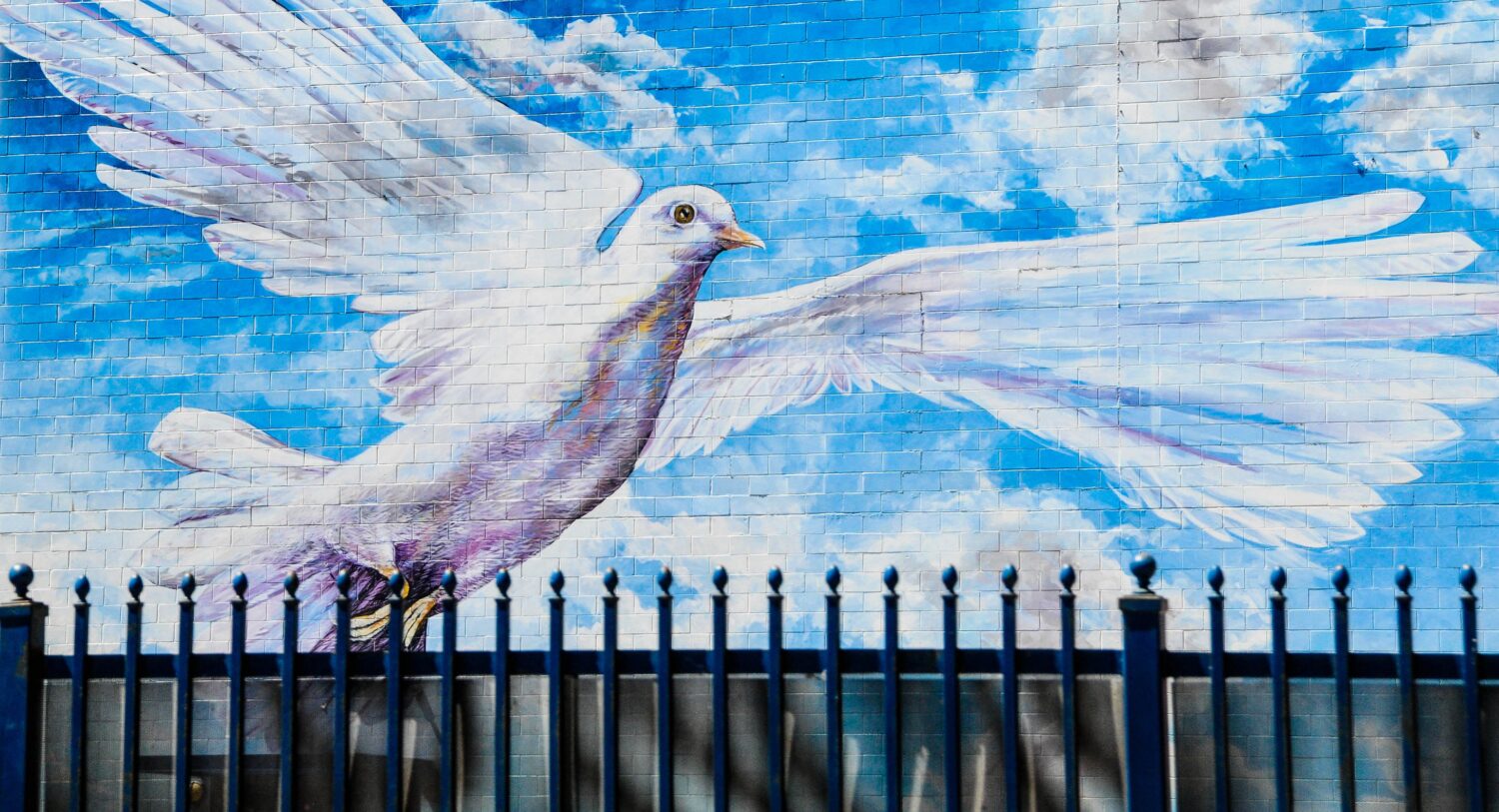
Matthew 5:1-12, Revelation 7:9-17
Sunday of All Saints | November 5, 2023 | Matthew 5:1-12, Revelation 7:9-17 | Dave Brooks |
“Who are these, clothed in white? From where do they come?”
Let us be blunt. That great multitude that John saw, the vast host from every tribe and language and nation and people that stand before the throne and the lamb, those who have come forth from great tribulation, are the ones who are blessed. They were poor in spirit. They were grieving. They were humble. They hungered and thirsted for righteousness. They were merciful. Their hearts were pure. They worked for peace. They were persecuted for being loyal to righteousness. They were reviled, accused of being evil, haters of humanity.
It is best to be honest: to live in the fashion that Jesus teaches will end in tribulation. At least, from the world’s perspective, it must be so. The world does not want what will surely come if a person lives the way Jesus teaches. The world says get enough health and strength that you don’t have to depend on anyone but can secure whatever you want yourself. And, if others must be stepped over, that’s the way the world works. The world says get enough money and juice so that you don’t have to fear anyone but can tell anyone who harasses you to get lost. And if others get hurt, that’s the way the world works. The world says get enough pleasure and happiness so that you don’t have to suffer but can move from triumph to triumph. And if others are left to grieve, that’s the way the world works.
In a remarkable book from many years ago, the German theologian Helmut Thielicke began a reflection on the Third Article of the Apostle’s Creed by examining the story of Babel:
What does this peculiar story mean? … As long as men are under God, they can trust one another; as long as there is trust, there is harmony and fellowship. But the moment [we get out from under God], the freedom and autonomy [we desire is also lost]…if you are aware that a person obeys the commandments of God, he is “knowable.” We know what to expect. On the other hand, if he obeys only the dictates of his own instincts or appetites…we don’t know, we cannot be confident. And where there is no confidence, all fellowship, from friendship and marriage all the way to the state and the community of nations, dissolves. It is the centrifugal force that is at the heart of the Tower…
This is what sin does. Our sin, our death-dealing sin sets lose the centrifugal force that spins us farther and farther away from one another, sets all creation itself spinning, but not in harmony, not with purpose, but further and further apart until all is cold and dark, with no possibility of communio, of community.
And so Christ comes—the Light that shines brightly, that Lamb that dies willingly, enters into our darkness and kindles us anew, makes us burn brightly with his glorious light. He makes us right with God; he makes us right with one another. In his wondrous power that makes all things right we can live as those who have nothing; we can live sorrowing, not shunning the hurt that comes as part of our lives and the lives of others; we can live gentle, unassuming lives that do not demand notice of others because we have the attention of God; we can live desiring that we and others be made complete, whole by God’s righteousness; we can live lives of compassion and mercy; we can live with hearts focused purely on the one true good; we can seek peace with those who would call us enemies; we can hope in the face of harassment because we are held by the Lord of righteousness. He has made us his own, and in bringing us to his side he has made us truly holy.
And the promise of such a life? The very reality of heaven: shelter, satisfaction, thanksgiving, peace and joy. We find the opposite of Thielicke’s lament, for we have communion with God and with one another. This is the truth of the Church—in her weakness, there is Godly strength, in sorrow, heavenly joy, in death, glorious resurrection. Thielicke again:
Only from this perspective can we explain the most wondrous fact of the Church: the martyrs did not merely suffer in stiffened silence; they burst into songs of praise, whether in Nero’s arenas, or before the revolution’s executioners, or in the dark cellars of the secret police. They did not suffer simply to honor the memory of the famous Nazarene. Understand me: they suffered because they were beyond that present moment in which their executioners worked; they heard the steps of the One to Come approaching. This was the source of their life, for the one who has the last hour has no fear of the next minutes.*
So, you who have been given the hope of the last hour—wouldn’t you like to rise and join the white-robed multitude in a song?
Amen.
—
*Citations are translated/paraphrased from Ich Glaube. Das Bekenntnis der Christen by Helmut Thielicke. Quelle-Verlag, Stuttgart, 1965.
—
Pastor Dave Brooks
Raleigh, NC
Pr.Dave.Brooks@zoho.com
